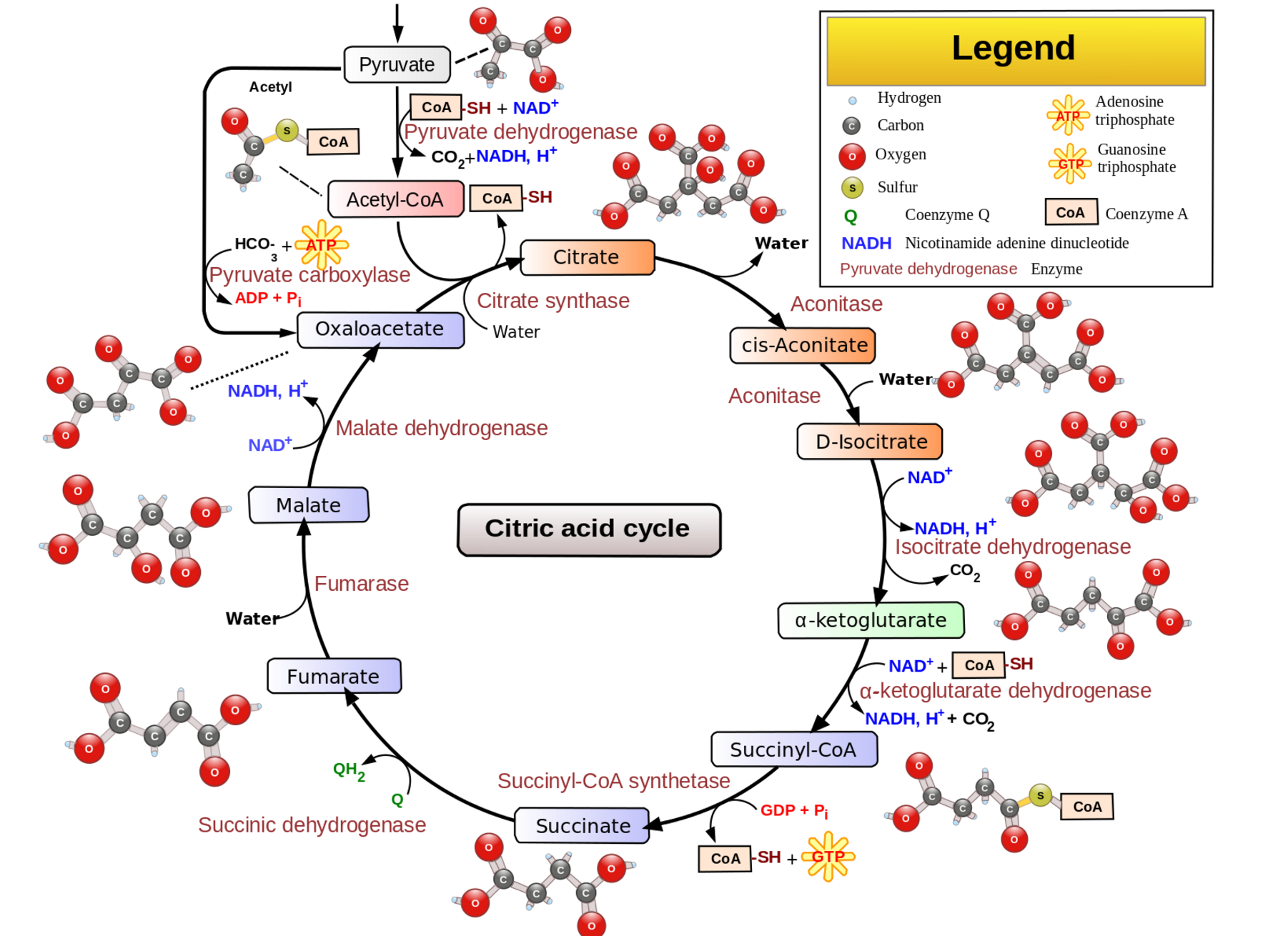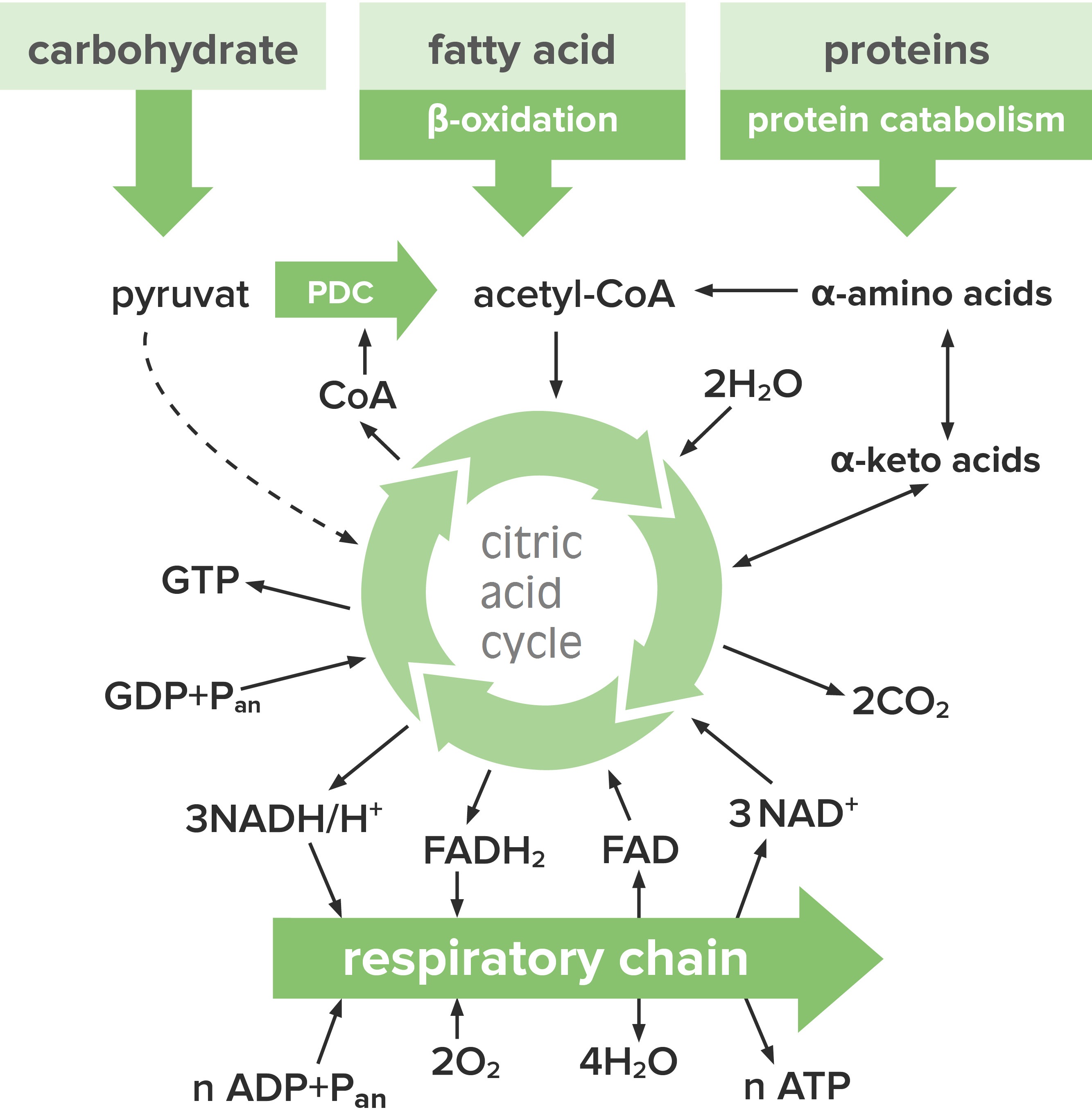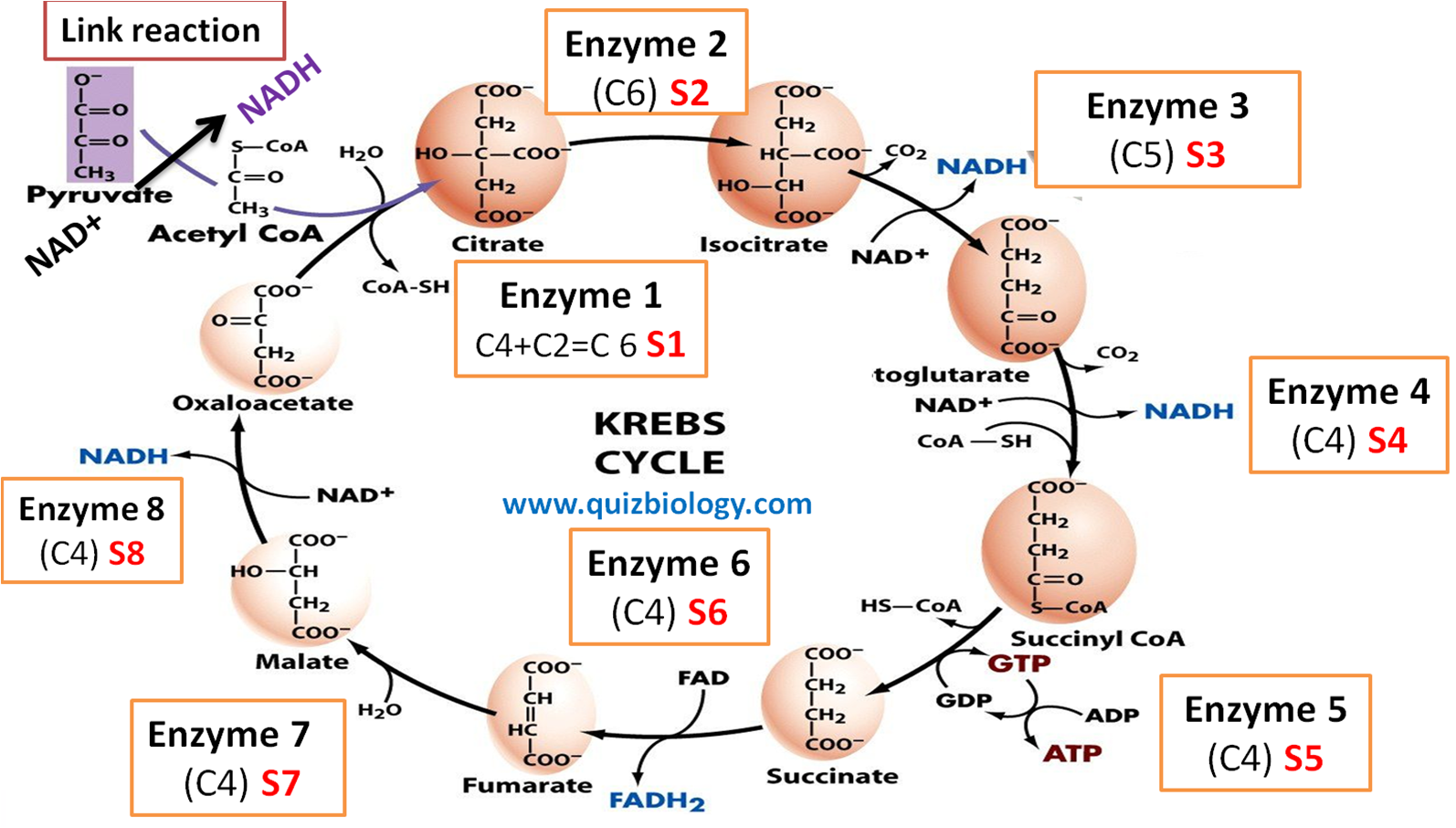Citric Acid Cycle Printable Map The cycle carries citric acid through a series of chemical reactions which gradually release energy and capture it in several carrier molecules For each acetyl CoA which enters the cycle 3 NAD are reduced to NADH one molecule of FAD another temporary energy carrier is reduced to FADH 2 and one molecule of ATP actually
The citric acid cycle captures the energy stored in the chemical bonds of acetyl CoA processed glucose in a step by step process trapping it in the form of high energy intermediate molecules The citric acid cycle also known as the TCA cycle or the Krebs cycle is a series of chemical reactions to release stored energy through the oxidation of acetyl CoA derived from
Citric Acid Cycle Printable Map
 Citric Acid Cycle Printable Map
Citric Acid Cycle Printable Map
https://www.researchgate.net/publication/335683625/figure/fig1/AS:801862815072276@1568190401979/Illustration-of-the-citric-acid-cycle-or-Krebs-cycle-through-which-pyruvate-from.png
The citric acid cycle is a series of chemical reactions that removes high energy electrons and uses them in the electron transport chain to generate ATP One molecule of ATP or an equivalent is produced per each turn of the cycle The electron transport chain is the portion of aerobic respiration that uses free oxygen as the final
Templates are pre-designed files or files that can be utilized for various functions. They can conserve effort and time by offering a ready-made format and design for creating various kinds of material. Templates can be used for personal or expert jobs, such as resumes, invites, flyers, newsletters, reports, presentations, and more.
Citric Acid Cycle Printable Map
:max_bytes(150000):strip_icc()/citricacidcycle-57ff98d45f9b5805c267d2ec.jpg)
How Many Atp Is Produced From Acetyl Coa Wasfa Blog

Citric Acid Cycle Interactive Pathways Biovision Inc Free Nude Porn

Map Citric Acid Cycle Location Map Maps

Krebs Cycle Diagrams 101 Diagrams

Planer University Top Nucleic Acid Map Activities Medical Anatomy

Microbiological Educational Diagram Sample Bacteria Transformation

https://www.ncbi.nlm.nih.gov/books/NBK541072
The citric acid cycle serves as the mitochondrial hub for the final steps in carbon skeleton oxidative catabolism for carbohydrates amino acids and fatty acids Each oxidative step in turn reduces a coenzyme such as nicotinamide adenine dinucleotide NADH or flavin adenine dinucleotide FADH2

https://bio.libretexts.org/Bookshelves/Introductory_and_General_Biology
The eight steps of the citric acid cycle are a series of redox dehydration hydration and decarboxylation reactions Each turn of the cycle forms one GTP or ATP as well as three NADH molecules and one FADH2 molecule which will be used in further steps of cellular respiration to produce ATP for the cell

https://chem.libretexts.org/Bookshelves/Organic_Chemistry/Organic
The citric acid cycle is an eight step series of reactions that results in the conversion of an acetyl group into two molecules of CO 2 plus reduced coenzymes Individual steps are explained in the text
https://bio.libretexts.org/Bookshelves/Introductory_and_General_Biology
Figure 7 10 1 The citric acid cycle In the citric acid cycle the acetyl group from acetyl CoA is attached to a four carbon oxaloacetate molecule to form a six carbon citrate molecule Through a series of steps citrate is oxidized releasing two carbon dioxide molecules for each acetyl group fed into the cycle

https://chem.libretexts.org/Bookshelves/Introductory_Chemistry/Map
In the matrix of the mitochondrion the Citric Acid Cycle uses Acetyl CoA molecules to produce energy through eight chemical reactions This animation provides an overview of the pathway and its products
The citric acid cycle also known as the Krebs cycle or tricarboxylic acid TCA cycle is the second stage of cellular respiration This cycle is catalyzed by several enzymes and is named in honor of the British scientist Hans Krebs who identified the series of steps involved in the citric acid cycle Do 4 problems Learn for free about math art computer programming economics physics chemistry biology medicine finance history and more Khan Academy is a nonprofit with the mission of providing a free world class education for anyone anywhere
The citric acid cycle is the first part of the third stage of food catabolism including carbohydrates fats and proteins It is called the citric acid cycle because a acetyl CoA produced in the second stage of catabolism of foods reacts with a 4C s oxaloacetate and produces 6C s citrate in the first reaction